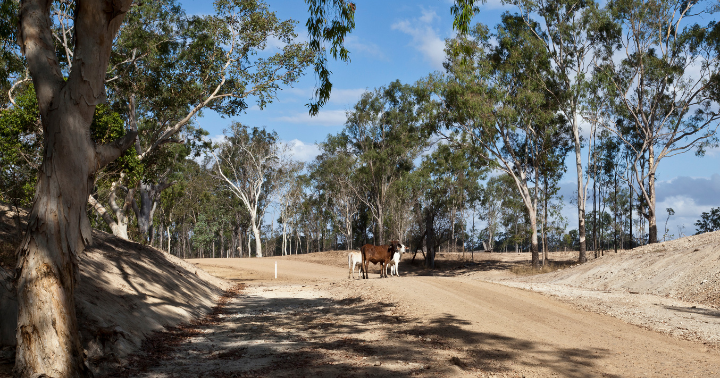
Enterprise Legal Explains: What is Compulsory Acquisition?
- Peta Gray
In Queensland, the government has the legal power to acquire privately owned land for public purposes. This process is called compulsory acquisition, and it is most often used for infrastructure projects, such as building roads, schools, hospitals, or other public facilities. While losing land in this way can be stressful for property owners, the law supposedly provides for ‘fair compensation’ and a structured process to ensure the acquisition is handled appropriately.
-
Why Does Compulsory Acquisition Happen?
Compulsory acquisition typically occurs when land is needed for major public projects, and purchasing the land through normal negotiation channels isn’t feasible. This could involve acquiring a whole property or just a part of it, such as when widening roads or building rail networks.
-
How Does the Compulsory Acquisition Process Work?
The compulsory acquisition process in Queensland is governed by the Acquisition of Land Act 1967. There are several key steps involved:
- Early Negotiation: Before a Notice of Intention to Resume (NIR) is issued, there may be an opportunity for early negotiations between the landowner and the acquiring authority. In some cases, the government may approach landowners well in advance to discuss the possibility of purchasing the property voluntarily. This can be a more straightforward, mutually beneficial process, as it allows both parties to reach an agreement without the need for formal compulsory acquisition procedures and in our extensive experience, usually sees the landowner receive a better outcome.
- Notice of Intention to Resume (NIR): If early negotiations are unsuccessful or if the landowner wants to stay in the property for as long as possible (and therefore doesn’t want to agree to an early negotiation), the acquiring authority will issue a formal Notice of Intention to Resume (NIR). This document outlines which land is proposed to be acquired and why.
- Opportunity to Object: Landowners have the right to object to the acquisition within 30 days of receiving the NIR. Grounds for objection can include the extent of the land required or the purpose of the acquisition. A meeting or hearing is typically held to review the objections before a final decision is made.
- Decision to Proceed: After considering any objections, the acquiring authority may decide to proceed with the acquisition. This decision is finalized by publishing a formal gazettal notice, which transfers ownership of the land to the government.
- Valuation and Compensation: Landowners are entitled to “fair” compensation, which is based on the market value of the property at the time of acquisition. The compensation may also cover certain additional costs, such as relocation expenses or loss of income, depending on the circumstances. See more below for our thoughts in this regard!
- Settlement: Once compensation is agreed upon, the landowner receives payment, and the acquisition process is completed.
-
What Can and Cannot Be Compensated?
When determining compensation, it's important to understand the types of losses that can and cannot be claimed in Queensland:
- What Can Be Compensated:
- Market Value of the Land: Compensation will cover the fair market value of the land as of the acquisition date.
Disturbance Costs: These include reasonable expenses related to relocating your business or home, such as moving costs, legal fees, valuation fees, and stamp duty on purchasing a replacement property. - Injurious Affection: If the acquisition only involves part of your property, compensation may be provided for any reduction in the value of the remaining land (called "injurious affection").
- Loss of Business: If the compulsory acquisition affects a business operating on the property, loss of future income or additional expenses related to relocating the business can also be compensated.
- Market Value of the Land: Compensation will cover the fair market value of the land as of the acquisition date.
- What Cannot Be Compensated (in Queensland at least):
- Emotional Loss or Stress: Unfortunately, compensation does not cover the emotional distress or inconvenience caused by the acquisition.
- Personal Sentimental Value: Compensation is based on market value and does not account for any personal sentimental attachment you may have to the property.
- Unrealistic Expectations of Value: The compensation must be fair and reflect the actual market value, meaning that overestimations of what the property might be worth will not be considered.
-
Key Points to Remember
- Early Negotiation Can Save Time and Stress: Engaging in early negotiation before the formal process starts can help both parties reach an agreement faster, potentially avoiding the need for compulsory acquisition altogether.
- You Have the Right to Object: If formal compulsory acquisition begins, you still have the right to object to the acquisition and present your case, ensuring your concerns are heard.
- Compensation Covers Financial Losses, Not Personal Costs: Compensation is focused on fair market value and business-related costs, but it won’t cover personal emotional losses or sentimental value attached to the property.
-
What Should You Do if Your Land is Being Acquired?
If your property might be subject to compulsory acquisition, it’s crucial to seek professional legal advice as soon as possible. Whether you’re in early negotiations or have already received a Notice of Intention to Resume, having a lawyer on your side will help ensure you understand your rights, can object if necessary, and secure fair compensation.
At Enterprise Legal, we have extensive experience assisting clients with compulsory land acquisitions. Our team can help you navigate the legal process, negotiate with authorities, and achieve the best possible outcome for your situation.









